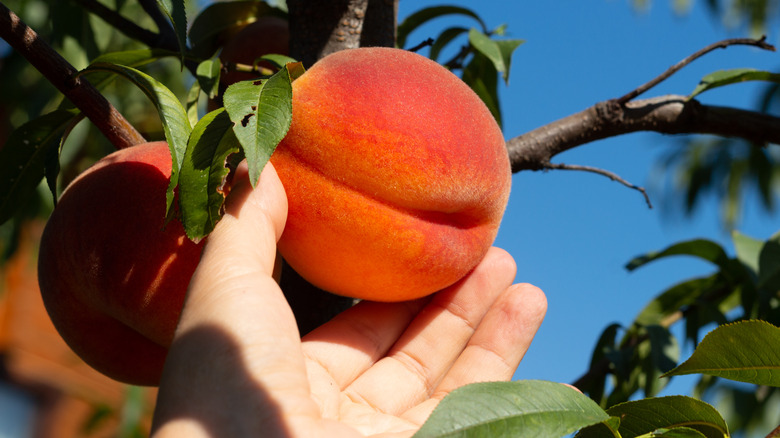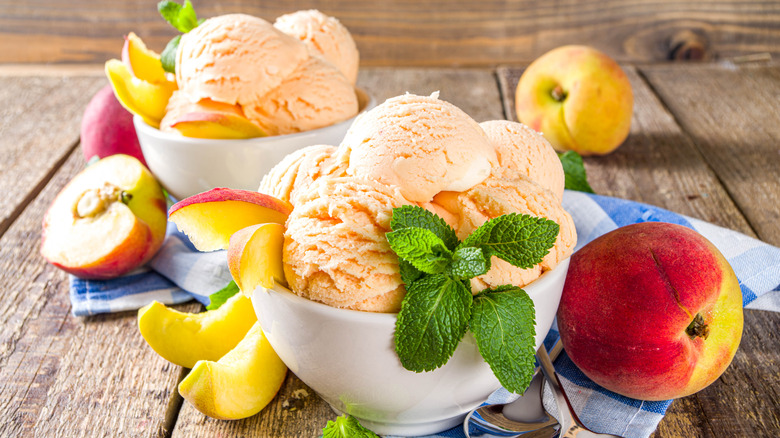The Real Reason Peaches Don't Arrive Overripe At The Grocery Store
Summer tastes like peaches. We have a deliciously short window to enjoy sweet juicy peaches, and their delicate nature makes them even more desirable. In the United States, there are 33 states that produce peaches, which means the peach harvest stretches from April through October, depending on where they're grown, according to The Peach Truck.
There are a number of peach varieties to choose from (via Pick Your Own), like freestone peaches, with pits or seeds that are easily removed, or clingstone peaches, with flesh that clings to the pit, making them more difficult to work with but yielding sweeter, richer fruit. There are also yellow peaches in both clingstone and freestone varieties, along with white peaches that tend to be a bit sweeter. You can even find more exotic peaches like donuts or the fuzz-less nectarine.
Peaches are so notoriously fragile that we have an expression for it: "to bruise like a peach." How, then, is it possible that we can find mounds of perfect peaches at grocery stores and markets throughout the summer, all ready to be transformed into recipes like a peach crisp? The reason is that peaches continue to ripen after they're picked; is there sorcery involved?
What happens after peaches are picked
Harvesting peaches is a labor of love. According to Farm Flavor, they're hand-picked, then they're immediately chilled, by a machine called a hydro-cooler. The farming website explains that hydro-coolers run water that's just above freezing temperature over produce to slow the process of natural respiration, which occurs when produce comes in contact with oxygen and produces carbon dioxide, heat, and water, all of which start a decline in quality. After hydro-cooling, peaches are cleaned, much of the fuzz is removed, and they're graded and sorted. After being loaded onto refrigerated trucks, most peaches arrive at your stores within three days.
According to Michigan State University, non-climacteric fruits like cherries and raspberries only fully ripen if they're left to mature on the plant. Peaches, however, are climacteric, which means they continue to mature after they're harvested. Because peaches are so delicate and sensitive to bruising when they're ripe, they're harvested before they're ready to eat. That's why your grocery store is typically full of peaches that aren't all fully ripe. Until a peach is ripe, it's best left at room temperature to develop more sweetness. You can tell if a peach is ripe if it smells sweet and its flesh gives when gentle pressure is applied. Once you bring your golden beauties home and they've ripened to perfection, you can keep them fresh by refrigerating them, canning them, or even transforming them into a refreshing sangria.

